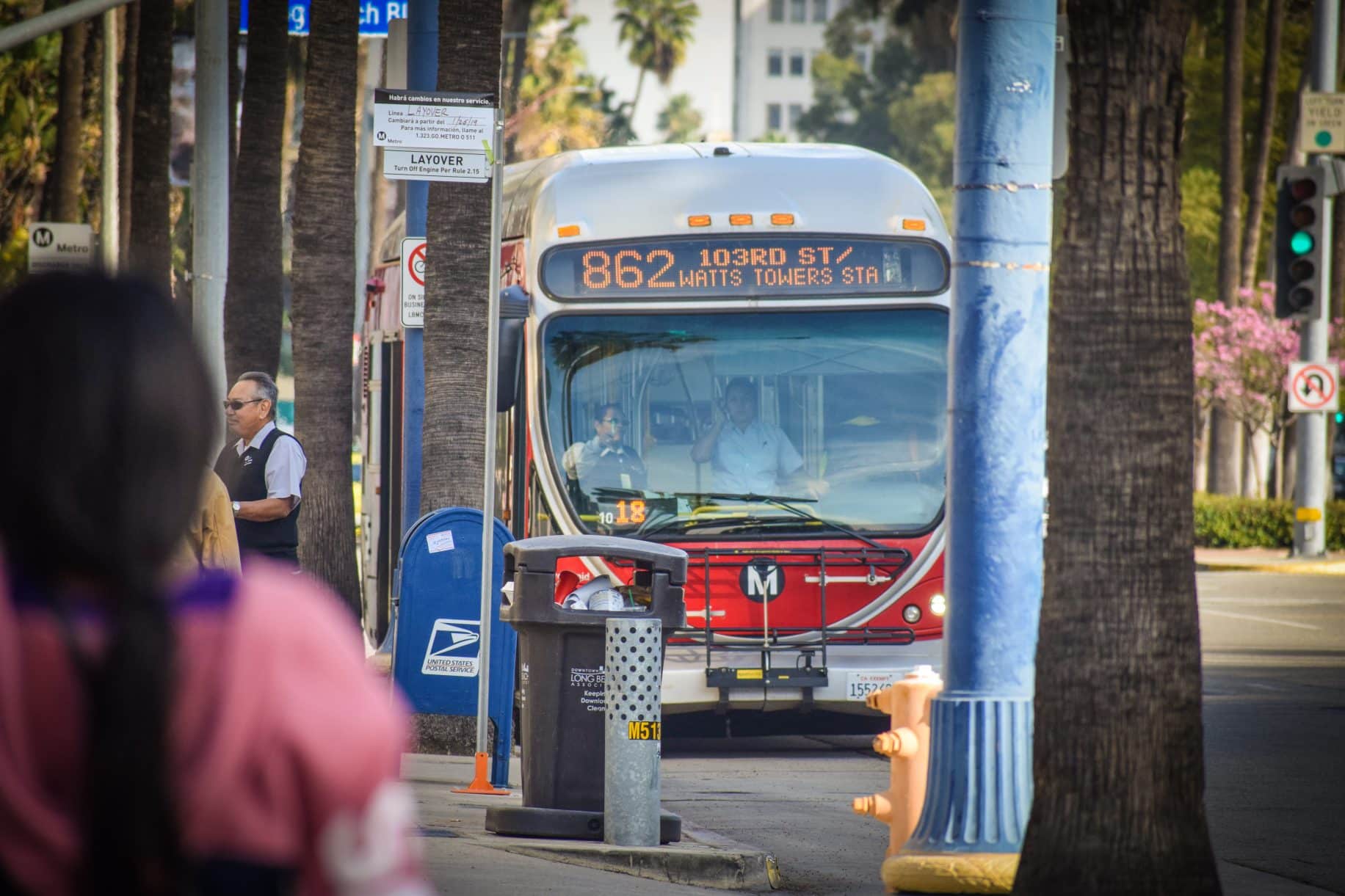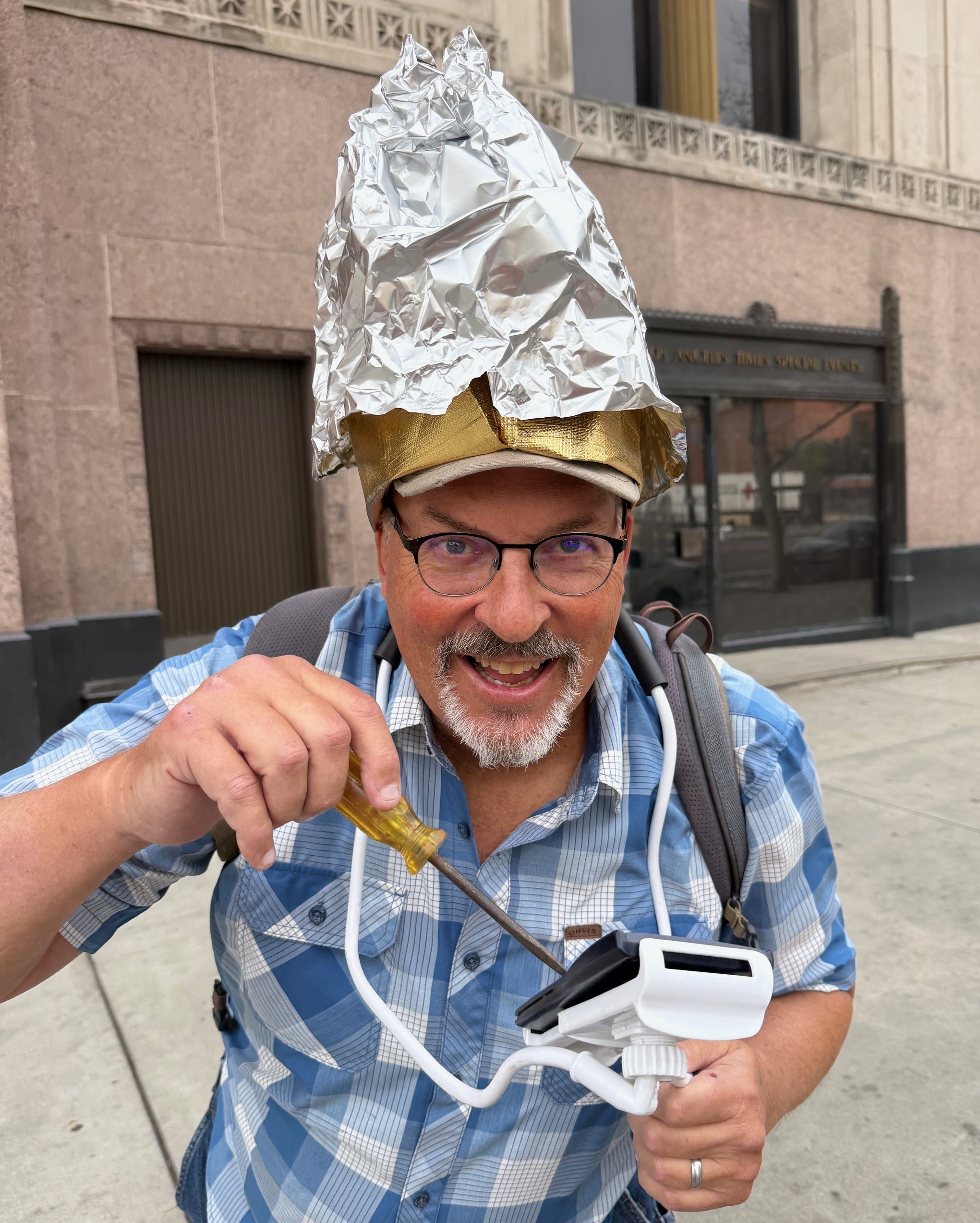This article first appeared yesterday on the LongBeachize page at the Long Beach Post
As I stood at The Promenade and Ocean Boulevard at 7:55 a.m., waiting to experience Metro’s rollout of its Blue Line substitute shuttles, I felt like my behavior over the weekend was going to be a reflection of the day’s ride.
Just yesterday, My Dude and I were thinking of heading to Los Angeles, like we often do, via the Blue Line—until I was reminded of the closure: Without an express shuttle—the one I hopped on this morning—that means we would have to hop on Metro’s 861 or 862 lines from Downtown, connect at the 103rd/Watts Tower Station, and then take the Blue Line up. And after speaking with Long Beach resident Daniel Ryan Lucero’s experience about that very ride he took on Saturday, it wasn’t looking pretty: Over 100 minutes to get from Downtown Los Angeles back home.
Ultimately, we ended up driving because we are privileged enough to have a car. And it was this precise decision that made me fear that many Metro users were going to be in for a headache: There are the owners who choose transit out of both ethics and convenience and are likely going to skip Metro’s proposed alternatives and, getting ripped off the most, those who depend on public transit because they have no alternative.
In fact, Long Beach resident Natalie M. Hernandez created a Facebook group, LA Metro Blue Line Riders, in the hopes of keeping those with cars on the shuttles and those without them connected to information as to how to best get around.
“We can’t simply be talking about how we need to take mass transit more; we need to provide proof that people in Los Angeles can be removed from car dependency without their lives being horribly interrupted,” Hernandez said. “We will collect people’s suggestions and comments and submit them to Metro as the group grows.”
With both types of folks in mind, especially the tens of thousands of folks without cars who are dependent on systems like the Blue Line, I wanted to ride Metro’s alternatives and talk to folks along the way in order to gather a sense of what Metro needs to do, if anything, to improve its temporary alternatives. (And rest assured, they do need improvements.)
****
Today marked the first day of Metro’s 860 Line, an express shuttle that starts at The Promenade and Ocean Boulevard. Much to my surprise and happiness (and something that occurred at every single portion of my trip), Metro employees were ready and happy to talk to passengers. If anything, it immediately felt organized, human-focused, and comfortable.
It was a definitive bonus for us as we took our first ride on the 860, which continued north up Pacific Avenue, making stops at substitute stations along the way (e.g. the “Willow Station” is not at its proper Blue Line location but instead located at Pacific Avenue and 27th Street. For the complete list of specific bus shuttle stop locations, view this map.)
After that, all 860 trips head onto the 405 freeway before joining the 110 FastTrak lane—strangely not using Metro’s Silver Line path in the middle of the 110, which given the traffic that even occurs in the FastTrak, would be a much better alternative—for a direct trip to Downtown Los Angeles, with stops at Pico and Seventh St./Metro Center.
For those seeking immediate comfort in numbers: The Metro’s 860 Express Shuttle was relatively speedy. After leaving at 8:05 a.m., we arrived at Pico Station in 67 minutes and Seventh St./Metro Center in 74 minutes.
This, however, benefits those who solely take the Blue Line from end-to-end during peak work hours: Monday through Friday, 5:30 to 9 a.m. and 3 to 7 p.m. (And it benefits mostly those who are able-bodied: By the time we had reached Willow, a stop near to both senior centers and convalescent homes, seats reserved for the disabled, those with wheelchairs, and the elderly were completely taken.)
For those in Wrigley, for example, my bus—a 40-foot XN40 bus rather than a 60-footer, which rather shocked me—was already full by the Willow stop; people were left waiting at Willow for the next bus while we didn’t even stop at Wardlow due to capacity. It was a stark reality that the myth about no one using transit in the Los Angeles region is just that: a myth.
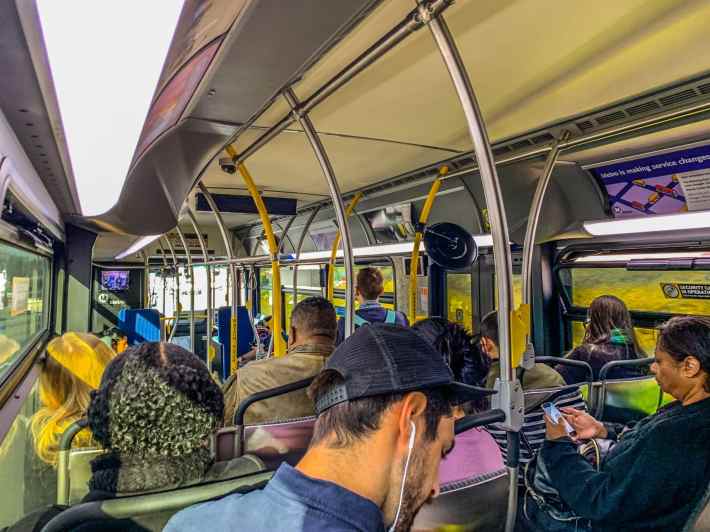
“I took the first 860 Express shuttle out of Downtown Long Beach at 5:30 a.m. and it was already packed before we even got out of Downtown,” said resident Michelle Lewis. “We need a bigger bus.”
For those who need any stop between Wardlow and Pico stations, you are forced to deal with Metro’s 861 or 862 lines, the latter of which is free and the former of which is available only during the weekday peak hours previously mentioned.
And for those who work on the weekend or need access during non-peak hours, this isn’t an alternative.
“Overall, I would call the 860 a success,” said Long Beach resident and Blue Line rider Daniel Gamboa. “But I found it odd they were using the much-longer ‘caterpillar’ buses for the 861 and not the 860, leading to severe capacity problems. Also, admittedly, my foot time after exiting at Pico was extended by a half-mile because of where the bus drops off.”
As for those taking the much less-used route from Downtown Los Angeles to Long Beach, Los Angeles resident Alex Yee noted that his trip took 59 minutes after leaving Seventh St./Metro Center at 8:12 a.m.
However, this is the morning and I deeply worry over the design and congestion of Downtown Los Angeles being able to the flock of folks seeking to head back home during afternoon rush hour.
Despite this, I felt compelled to take the other route back because, after the smooth ride that skips the entire South Central area, I wanted to know what folks were dealing with if they depended on the Blue Line’s entirety. It’s not fun, despite Metro’s efforts to accommodate.
****
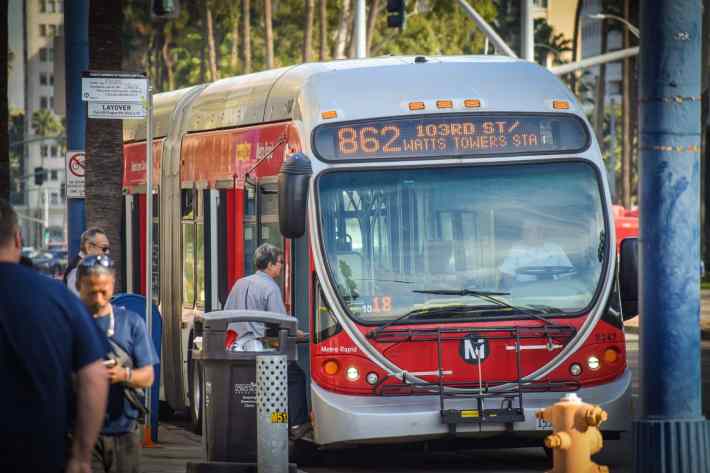
I hit the Blue Line at Metro Center, with the train heading toward its final stop of 103rd/Watts Tower at 9:33 a.m. in order to meet with Metro’s 861/862 lines.
Unlike many mornings taking the Blue Line, the train was mostly empty and there was also a sense of spirit lost: Had it have been during any other period of its history, the Blue Line would erupt with conversations, music, and, at least in this century, some sort of seller who still thinks DVDs are a viable source of pirating. So I spoke to Leti Mercado, a lone 15-year-old high schooler from South Gate, as she connected from visiting a friend in Los Angeles.
“Normally, I would have taken this all the way to Long Beach so I can shop at the Pike Outlets—they have stores I can’t get to in South Gate,” she said. “But there’s just no way I am going to hop on a bus that takes forever to get there. I’ll just go somewhere else instead.”
It felt, looking around, that most had gone somewhere else, though the capacity began to pick up as we headed further from Downtown Los Angeles and more toward 103rd. After that, what I thought was a mostly empty train was anything but: Tons of folks began to line down the ramps, waiting to cross the tracks in order to access the 861, which was out of service by the time I arrived, or the 862.
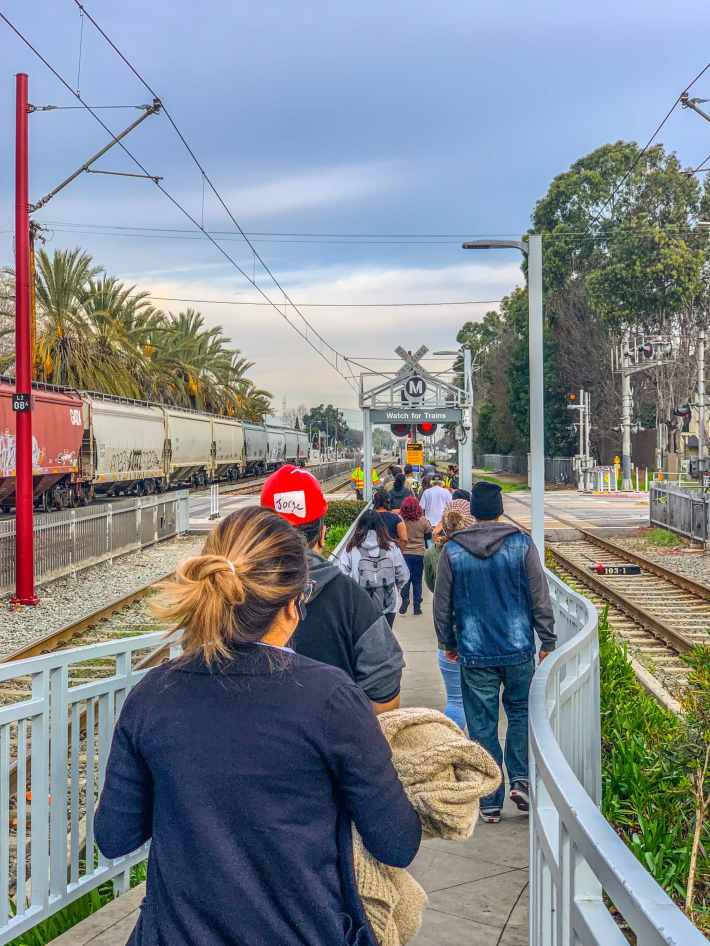
By the time I got on the 864 and began moving, it was 10:04 a.m. and we began what would end up being a 74-minute trek to Downtown Long Beach, making the entire connection between Metro Center and the end of the line an exhausting 102 minutes.
Which yet again leads me to a frustrating conclusion: For those who depend on the Blue Line’s “in-between” locations that aren’t just its polar ends, getting there is going to take time—and a lot of it. So some things, despite valiant if not outright applause-worthy efforts this morning, need to be tweaked.
“Metro needs to start running the 60B [running from Artesia to Downtown Los Angeles] all day as an alternative,” said Lucero. “I would like to see Long Beach Transit create a temporary line that would stop along with the 51 or Metro 860.”
Lucero’s suggestion makes sense: If Long Beach Transit or Metro connected, they could create a bus line that goes from Wardlow to the Harbor Transit Gateway in San Pedro; this would connect riders directly with Metro’s express Silver Line to Downtown Los Angeles.
“Seven days a week with 30-minute headways through rush hour followed by 60-minute headways after 9 p.m. until the end of service and an added alternative,” Lucero said.
Metro, seems like you should listen to your riders.
Brian Addison is a columnist and editor for the Long Beach Post. Reach him at brian@lbpost.com or on social media at Facebook, Twitter, Instagram, and LinkedIn.
